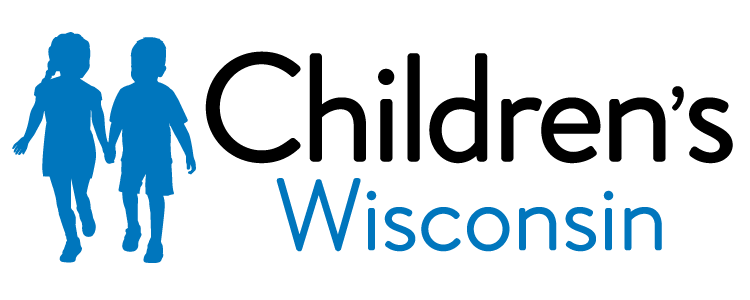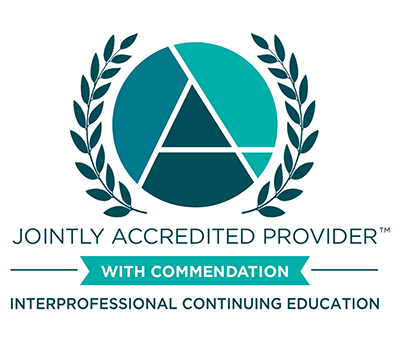eHomeCare - Trach/Vent
The University of Wisconsin–Madison School of Nursing, UW Health Kids, and Children's Hospital of Wisconsin developed eHomeCare course content.
![]()


Overview
eHomeCare is an online training program designed to provide comprehensive information for those caring for children with a tracheostomy with/without a ventilator. Learners can use this educational intervention for initial training, an annual review, and as an ongoing resource.
Some Wisconsin ventilator certification programs require eHomeCare as a part of their training; however, on its own, eHomeCare does NOT meet the State of Wisconsin DHS training requirements for licensed healthcare professionals to be certified to care for a ventilator dependent patient in the home.
Practice Gaps and Needs
A growing number of children with tracheostomies with/without a ventilator are being cared for in home and community environments by home care nurses, family members, and caregivers. Despite the increasing population, there is a limited amount of educational resources to support ongoing training. Current programs are out-of-date and not easily accessible, causing a knowledge gap and decreased confidence in caregiving skills.
These engaging modules are available on demand and will help learners to increase their knowledge, competence, and confidence by applying critical thinking skills to day-to-day caregiving and emergency situations. The modules were built on the foundation of the former UW-Madison Pediatric Tracheostomy and Ventilator program and include current best practices.
Target Audience
The target audience for this training program includes nurses working in home-based environments, physicians, respiratory therapists. Students from health professions, family members and caregivers of children with tracheostomies with/without ventilators will also find value from completing this course.
Elements of Competence
This continuing education intervention is designed to change learner competence and focuses on the American Board of Medical Specialties' areas of patient care and procedural skills, medical knowledge, Institute of Medicine areas of employing evidence-based practice, and the Interprofessional and Nursing area of roles/responsibilities.
Access after Completion
Upon completion of this course, you will have access to it as a reference until the course expiration date.
Learning Objectives
- Describe best practices for providing day-to-day care for children with tracheostomies with/without ventilators in the community
- Explain how to manage emergency situations for children with tracheostomies with/without ventilators in the community
- Report an increase in confidence when caring for children with tracheostomies with/without ventilators in the community
- Describe the roles and responsibilities of members of the healthcare team
Pediatric Vent Certification and Recertification
For questions related to in-person trainings offered through Children's Wisconsin in Milwaukee, contact the educational services team at 800.444.7747 or [email protected]. More information about trainings can be found online at:
CONFERENCES & TRAINING – maxiSHARE.
The University of Wisconsin–Madison Interprofessional Continuing Education Partnership (ICEP) gratefully acknowledges financial support from the following companies/organizations:
The University of Wisconsin Foundation, Children's Wisconsin, and Marquette University.
You may also be interested in
The eHomeCare Learning Community is where you can find information about additional courses designed to improve the knowledge, skills, and confidence of home care providers caring for children with complex medical needs, including:
- Central Line Care
- Dialysis In Home
- Infection Control
- Setting Boundaries in the Home
- Skin Care
- Range of Motion
- Daily Care Activities for Children
eHomeCare is a partnership between Marquette University College of Nursing, University of Wisconsin-Madison School of Nursing, UW Health, American Family Children’s Hospital, Children’s Wisconsin, and University of Illinois Chicago’s Division of Specialized Care for Children.
AUTHORS
| Gretchen Cunningham, BS, RRT UW Health | Cindy Griffith, RN, BSN | Cecilia Lang, MSN, CCRN, PPCNP-BC Children’s Wisconsin |
| Grace Flanagan, RRT Children’s Wisconsin | Jennifer Henningfeld, MD Medical College of Wisconsin/Children’s Wisconsin | Lisa Molkentine, RRT-NPS Children’s Wisconsin |
PLANNING COMMITTEE MEMBERS
| *Kim Whitmore, PhD, RN, CPN Marquette University, College of Nursing | Tyler Engel, Project Manager | Jennifer Henningfeld, MD Medical College of Wisconsin/Children’s Wisconsin | Lisa Molkentine, RRT-NPS Children’s Wisconsin |
| Vivek Balasubramaniam, MD University of Wisconsin-Madison, School of Medicine and Public Health | Grace Flanagan, RRT Children’s Wisconsin | Cecilia Lang, MSN, CCRN, PPCNP-BC Children’s Wisconsin | Anastasia O'Kane, BSN, RN, CPN UW Health |
| Gretchen Cunningham, BS, RRT UW Health | Cindy Griffith, RN, BSN Children’s Wisconsin | Mary Marcus, MS, RD, CSP, CD University of Wisconsin-Madison, Waisman Center |
*Course Director
POLICY ON DISCLOSURE
It is the policy of the University of Wisconsin–Madison Interprofessional Continuing Education Partnership, that the faculty, authors, planners, and other persons who may influence content of this CE activity disclose all relevant financial relationships with commercial interests in order to allow CE staff to identify and resolve any potential conflicts of interest. Faculty must also disclose any planned discussion of unlabeled/unapproved uses of drugs or devices during their presentation(s). Detailed disclosures are listed below.
*The ACCME, ACPE, and ANCC defines a commercial interest as any entity producing, marketing, re‐selling, or distributing health care goods or services consumed by, or used on, patients. The ACCME, ACPE, and ANCC does not consider providers of clinical service directly to patients to be commercial interests.
Previous eHomeCare Course Disclosures: Financial Disclosures For Planning Committee, Authors, Reviewers, and UW-Madison School of Nursing Staff.
| Name | Role(s) | Financial Relationship Disclosures | Discussion of Unlabeled/Unapproved uses of drugs/devices in presentation? |
| Kim Whitmore, PhD, RN, CPN Marquette University, College of Nursing | Course Director, Reviewer | No relevant relationships with ineligible companies to disclose | No |
| Vivek Balasubramaniam, MD University of Wisconsin-Madison, School of Medicine and Public Health | Planning Committee Member | No relevant relationships with ineligible companies to disclose | No |
| Gretchen Cunningham, BS, RRT UW Health | Planning Committee Member, Author, Reviewer | No relevant relationships with ineligible companies to disclose | No |
| Tyler Engel, Project Manager Marquette University, College of Nursing | Planning Committee Member | No relevant relationships with ineligible companies to disclose | No |
| Grace Flanagan, RRT Children’s Wisconsin | Planning Committee Member, Author, Reviewer | No relevant relationships with ineligible companies to disclose | No |
| Cindy Griffith, RN, BSN Children’s Wisconsin | Planning Committee Member, Author, Reviewer | No relevant relationships with ineligible companies to disclose | No |
| Jennifer Henningfeld, MD Medical College of Wisconsin/Children’s Wisconsin | Planning Committee Member, Author | No relevant relationships with ineligible companies to disclose | No |
| Holly Jacobson, RT Children's Wisconsin | Planning Committee Member, Author, Reviewer | No relevant relationships with ineligible companies to disclose | No |
| Cecilia Lang, MSN, CCRN, PPCNP-BC Children’s Wisconsin | Planning Committee Member, Author, Reviewer | No relevant relationships with ineligible companies to disclose | No |
| Mary Marcus, MS, RD, CSP, CD University of Wisconsin-Madison, Waisman Center | Planning Committee Member | No relevant relationships with ineligible companies to disclose | No |
| Lisa Molkentine, RRT-NPS Children’s Wisconsin | Planning Committee Member, Author, Reviewer | No relevant relationships with ineligible companies to disclose | No |
| Anastasia O'Kane, BSN, RN, CPN UW Health | Planning Committee Member, Reviewer | No relevant relationships with ineligible companies to disclose | No |
| Sue Gaard, MS, RN, Nursing Professional Development Director, UW-Madison School of Nursing | Committee Member | No relevant relationships with ineligible companies to disclose | No |
| Tracy Mrochek, MPA, RN, NPD-BC, Nursing Professional Development Manager, UW-Madison School of Nursing | Committee Member | No relevant relationships with ineligible companies to disclose | No |
| Nina Berge, BA, Continuing Education Specialist, UW-Madison School of Nursing | Committee Member | No relevant relationships with ineligible companies to disclose | No |
| Emily Haarsma, BA, Continuing Education Specialist, UW-Madison School of Nursing | Committee Member | No relevant relationships with ineligible companies to disclose | No |
| Rob Poehnelt, BA, Continuing Education Specialist, UW-Madison School of Nursing | Committee Member | No relevant relationships with ineligible companies to disclose | No |
Accreditation Statement
 | In support of improving patient care, the University of Wisconsin–Madison Interprofessional Continuing Education Partnership (ICEP) is jointly accredited by the Accreditation Council for Continuing Medical Education (ACCME), the Accreditation Council for Pharmacy Education (ACPE), and the American Nurses Credentialing Center (ANCC) to provide continuing education for the healthcare team. |
Credit Designation Statements
American Association for Respiratory Care (AARC)
This program has been approved for 4.75 contact hours Continuing Respiratory Care Education (CRCE) credit by the American Association for Respiratory Care, 9425 N. MacArthur Blvd, Suite 100, Irving TX 75063.
American Nurses Credentialing Center (ANCC)
The University of Wisconsin–Madison ICEP designates this enduring material for a maximum of 4.75 ANCC contact hours.
American Medical Association (AMA)
The University of Wisconsin-Madison ICEP designates this enduring material for a maximum of 4.75 AMA PRA Category 1 Credit(s)™. Physicians should claim only the credit commensurate with the extent of their participation in the activity.
Continuing Education Units
The University of Wisconsin–Madison, as a member of the University Continuing Education Association (UCEA), authorizes this program for .475 continuing education units (CEUs) or 4.75 hours.
Available Credit
- 4.75 AMA PRA Category 1 Credit™
- 4.75 ANCC Contact Hours
- 4.75 CRCE® Contact Hours
- 4.75 University of Wisconsin–Madison Continuing Education Hours
- 4.75 Approved for AMA PRA Category 1 Credit™
Registration for this activity can only be completed through the ICEP Learning Portal. Attendee registrations made through any other sites cannot be honored. UW-Madison ICEP is not able to refund fees paid through unaffiliated registration sites, such as eMedEvents.com, MedConfWorld.com, EventEgg.com, and 10times.com. Please report any unauthorized websites or solicitations for registrations to [email protected]
Accessibility
Required Hardware/software
Free, current version of Chrome (preferred), Firefox, Safari, or Edge. Some older browsers and Microsoft Internet Explorer could produce error messages or not display the content correctly.
Free, current version of Adobe Acrobat Reader or other .pdf reader

 Facebook
Facebook X
X LinkedIn
LinkedIn Forward
Forward